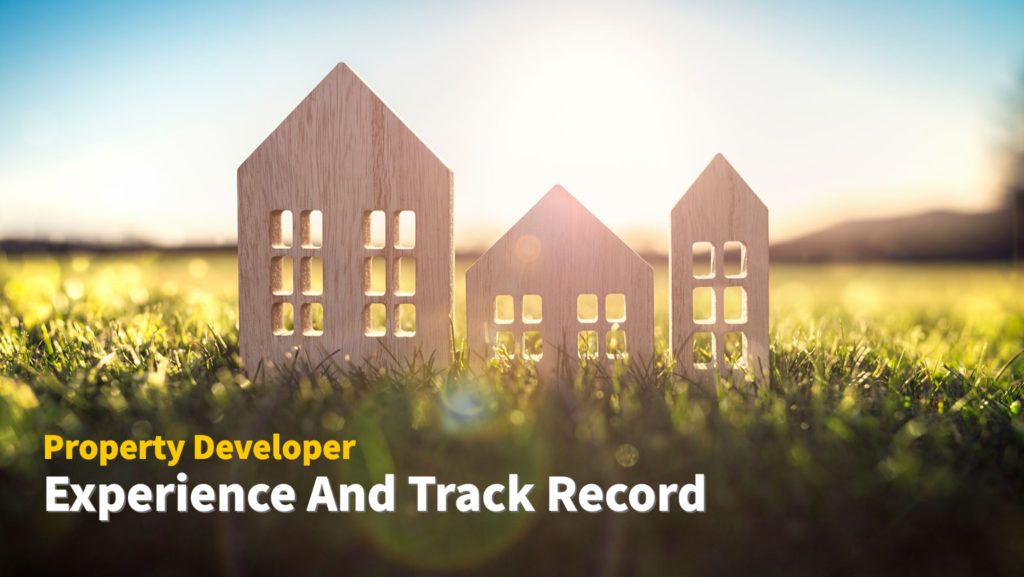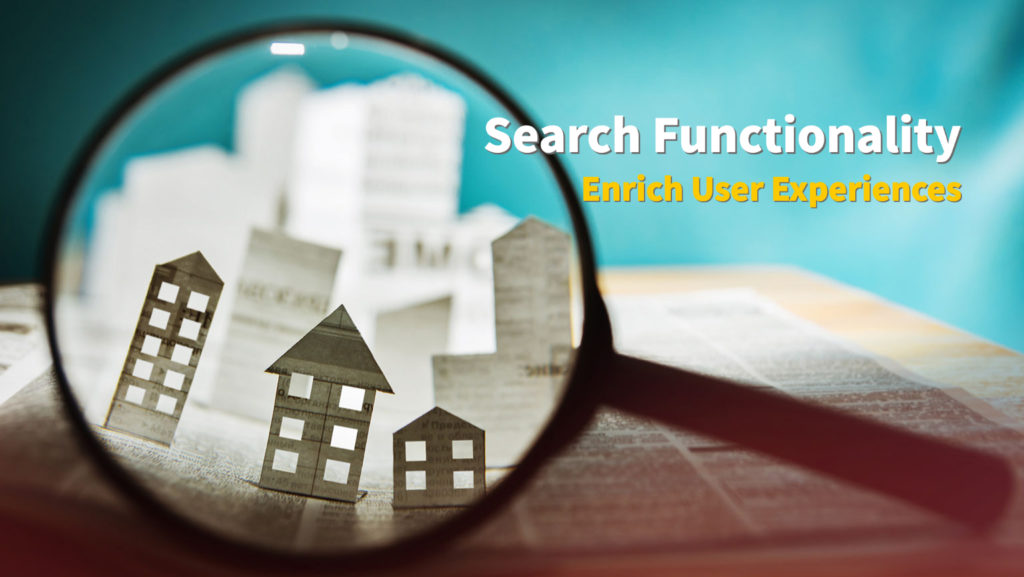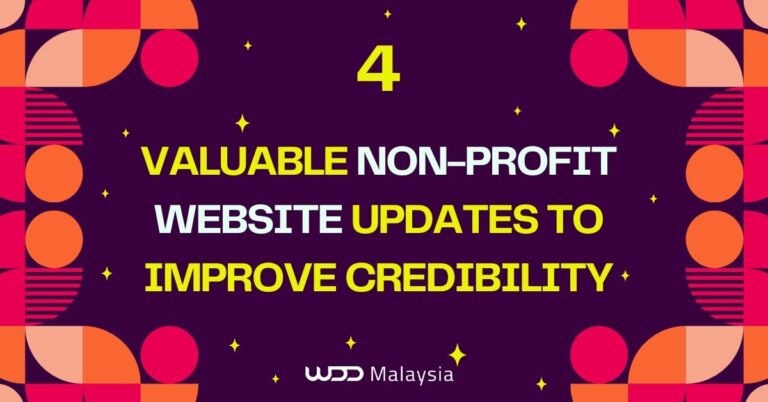
The answer is YES, property websites can play a significant role for property developers. A website can be used to showcase a developer’s current and upcoming projects, provide information about the company and its team, create, and allow potential buyers to contact the developer for more information or to schedule a visit to a property.
Additionally, a website can also be used to market properties, through the use of high-quality images, virtual tours, and other multimedia content. A website can also be used as a tool to connect other real estate websites with potential buyers and keep them informed about new developments and promotions. Overall, a website can be a valuable tool for property developers to reach a wider audience, promote their properties, and generate leads.

Key Features for a Real Estate Website Design
A website for a property developer should have several key features to effectively promote their properties and generate leads. Some of the key features include:
High-quality images and virtual tours: This is one of the most important features of a property developer’s website as it is one of the best ways to showcase the property and give the visitors a sense of what the property looks like.
Interactive maps: These enhance visual engagement by showcasing amenities and key locations, helping potential buyers visualize their new apartments and facilitating informed decision-making.
Information about the developer and the team: This feature allows visitors to learn more about the property developer’s background and experience, and can help build trust and credibility.
List of current and upcoming projects: This feature allows visitors to easily browse through the property developer’s portfolio and learn more about the properties that are currently available or soon to be available.
Property search functionality: This feature allows visitors to search for properties based on specific criteria such as location, price, number of bedrooms, and more.
Contact form or contact information: This feature allows visitors to easily get in touch with the developer to schedule a visit or ask questions.
Lead generation forms: These are crucial tools for converting website visitors into potential customers. Simple forms enhance conversions, and landing pages serve specific goals like obtaining contact information or promoting content.
Mobile responsive: This feature allows the website to adapt to the screen size of the device being used to access it, ensuring that the website is easy to navigate and view on any device.
Social media integration: This feature allows visitors to easily connect with the developer on social media and stay informed about new developments and promotions.
Blog or news section: This feature allows the developer to share news, ideas and insights with the visitors and keep them engaged.
Multilingual support: This feature allows the developer to cater to an international audience by providing the website in different languages.
Overall, a website for a property developer should be well-designed, easy to navigate and provide all the necessary information to visitors in an easy-to-find and easy-to-understand format.

Benefits of Using High-quality Images and Virtual Tours
High-quality images and virtual tours are one of the most important features of a property developer’s website. They are an effective way to showcase the development of property and give visitors a sense of what the property looks like.
High-quality images
High-quality images are crucial for a property developer’s website. They should be clear, sharp, and professionally shot. The use of a professional photographer is recommended to ensure that the website images are of the highest quality. The images should be taken from different angles and should be able to showcase the property’s most attractive features.
Virtual tours
Virtual tours are an interactive way to showcase a property. They allow visitors to walk through the property and get a sense of the layout and flow of the space. Virtual tours can be created using 360-degree panoramic images, video, or interactive 3D models. They can be embedded into the website or linked to from the website. Virtual tours can provide a more immersive experience for visitors, allowing them to get a better sense of the property before scheduling a visit.
Both high-quality images and virtual tours are important in giving visitors a sense of the property, and can help generate interest and leads. It’s important to note that the images showcasing properties, and tours should be updated regularly to showcase the most recent and accurate representation of the property.

Background and Experiences of a Property Developer
When looking for a property developer, potential buyers and investors, as well as real estate developers, may be interested in learning about the developer’s background and experience. Some of the information that users may look for include:
Track record: Information about the developer’s past projects, completed projects, and their success rate.
Experience: Information about the developer’s experience in the industry, how long they have been in business and the types of properties they have developed.
Reputation: Information about the developer’s reputation in the industry, such as awards they have won, or any recognition they have received.
Professional qualifications: Information about the developer’s professional qualifications, such as certifications, licenses, and memberships in professional organizations.
Financial stability: Information about the developer’s financial stability, such as their credit rating, and any financial statements available.
Team: Information about the developer’s team, such as the number of people they employ, their professional background, and their areas of expertise.
Reviews: Reviews from past clients and testimonials on the developer’s website or social media pages.
Transparency: Information about the developer’s business practices, any certifications, licenses, and regulations they adhere to, and any information about the sales process and legal requirements for the properties.
Overall, potential buyers, prospective clients, and investors may be interested in learning about a developer’s background and experience to gain an understanding of their level of expertise and trustworthiness. This information can help them make an informed decision about whether to work with a particular developer or not.

The Importance of Listing Current and Upcoming Projects in the Website
Listing current and upcoming property listings on a property developer’s website is important for several reasons:
It showcases the developer’s portfolio: By listing current and upcoming property listings, a developer can showcase the breadth and depth of their portfolio, and give visitors an idea of the types of properties they have developed or are developing.
It helps generate leads: By listing current and upcoming property listings, visitors can get a sense of what properties are available or soon to be available, and may be more likely to reach out to the developer to schedule a visit or ask for more information.
It helps establish credibility: By listing current and upcoming property listings, a developer can demonstrate their experience and expertise in the industry. It shows that they have a steady pipeline of projects, which can help establish credibility and trust with visitors.
It helps visitors make informed decisions: By listing current and upcoming property listings, visitors can get a sense of what properties are available and make informed decisions about which properties to visit or show interest in.
It helps keep visitors informed: By listing current and upcoming property listings, visitors can stay informed about new developments and promotions, and be more likely to return to the website in the future.
It helps the developer to target specific audience: By listing current and upcoming property listings, developers can target specific audience based on the type of properties they are developing, such as luxury properties or affordable housing.
Overall, listing current and upcoming property listings on a property developer’s website is an important way to showcase the developer’s portfolio, generate leads, keep customer satisfaction, establish credibility, and keep visitors informed.

Property Search Functionality Enrich User Experiences
Having property search functionality on a website can be beneficial even if a property developer only has a few projects.
It allows visitors to quickly find the information they need: A search function can help visitors quickly find specific information about a property, even if there are only a few projects listed on the website. It can save them time by not having to browse through the entire website to find the information they need.
It allows visitors to filter properties based on specific criteria: A search function can allow visitors to filter properties based on specific criteria such as location, price, number of bedrooms, and more. This can help visitors find properties that match their specific needs and preferences, even if there are only a few projects listed on the website.
It can improve the user experience: A search function can improve the user experience by making it easier for visitors to find the information they need. This can increase the chances that they will stay on the website longer and may be more likely to contact the developer or schedule a visit.
It can help developers to target specific audience: A search function can allow developers to target specific audience based on the type of properties they are developing, even if there are only a few projects listed on the website.
It can be used as a lead generation tool: Even if there are only a few projects, a search function can be used as a lead generation tool. By capturing the user’s search criteria and contact information, developers can follow up with them and potentially convert them into a lead.
However, it’s important to note that the search functionality should be easy to use, and it should be well integrated into the website design. If the website has only a few projects, it may make sense to not have a search functionality and instead having a simple and easy to navigate layout that highlights the available properties.
Search Engine Optimization (SEO) for Property Developers
Search engine optimization (SEO) is crucial for property developers to increase their online visibility and attract potential buyers. A well-optimized website can significantly improve search engine rankings, drive organic traffic, and generate valuable leads from potential clients.
To start, property developers should focus on comprehensive keyword research. Identifying and using relevant keywords such as “real estate website design” and “property development” can help property developers rank higher in search engine results. Incorporating these keywords naturally into your real estate website, content, meta tags, and titles is essential for on-page optimization.
Link building is another critical aspect of SEO. By acquiring high-quality backlinks from reputable sources, property developers can increase their website’s authority and improve search engine rankings. Additionally, local SEO is vital for attracting potential buyers in specific areas. Claiming and optimizing Google My Business listings can enhance local search engine rankings and make it easier for local buyers to find the properties.
Building a strong online digital presence through effective SEO strategies can help property developers establish their brand and attract more leads. Regularly monitoring and analyzing website analytics is crucial to track SEO progress and make data-driven decisions. By focusing on SEO, property developers can ensure their website stands out in the competitive real estate industry.

The Contact Form Important Fields
A contact form is an important feature for a property developer’s website, as it allows visitors to easily get in touch with the developer to schedule a visit or ask questions. The usual fields that are required within a contact form include:
Name: This field allows the developer to address the visitor by name.
Email address: This field allows the developer to reply to the visitor’s inquiry.
Phone number: This field allows the developer to call or text the visitor if necessary.
Message: This field allows the visitor to ask questions or provide additional information about their inquiry.
Property of Interest: This field allows the visitor to specify which particular property they are interested in, providing detailed information about amenities and layouts.
Purpose of Inquiry: This field allows the visitor to specify the reason for their inquiry, such as scheduling a visit, asking for more information, or making an offer.
Captcha: This field is used to prevent spam and bots from submitting the form.
Submit button: This button allows the visitor to send their inquiry to the developer.
It’s important to note that the contact form should be easy to find and use, and that it should be well integrated into the website design. Additionally, the developer should have a system in place to respond to inquiries in contact forms in a timely manner, and to follow up with visitors as needed.

Mobile Responsive Affects User's Responses
Mobile responsive design is the ability of a website to adapt to the screen size of the device being used to access it, ensuring that the website is easy to navigate and view on any device. A mobile responsive design can greatly affect user’s responses in the following ways:
Improved User Experience: A mobile responsive design ensures that the website is easy to navigate and view on any device, which can greatly improve the user experience. When a user can easily access and interact with a website on their mobile device, they are more likely to engage with the content, stay on the website longer, and take the desired action, such as scheduling a visit or making an inquiry.
Increased conversions: A mobile-responsive design can increase conversions by making it easier for mobile users to take action on the website. For example, if a user can easily fill out a contact form on a mobile device, they are more likely to do so, which can lead to more leads for the developer.
Better SEO: Google and other search engines favor mobile-friendly websites in their search rankings, so having a mobile-responsive design can improve a website’s search engine optimization (SEO) and increase its visibility in search results.
Increased accessibility: A mobile responsive design allows users to access the website from any device, which can increase accessibility for users who may not have access to a traditional desktop or laptop computer.
Better analytics: A mobile responsive design also helps in tracking the analytics of the user behavior on the website. It helps to know how many users are visiting the website through mobile, which pages they are visiting, how long they are staying and so on.
Overall, a mobile responsive design can greatly affect user’s responses by improving the user experience, increasing conversions, improving SEO, increasing accessibility and better analytics. It is an essential feature for property developer’s website design strategies as it can help reach a wider audience and generate more leads.

Mobile-First or Desktop-First?
When designing a new website, the question of whether to design for mobile or desktop first is a contentious one and depends on the developer’s preference and the target audience.
Designing for mobile-first: This approach prioritizes the mobile experience, and designs the website to look and function well on a small screen first, before adapting it for larger screens. This approach is becoming increasingly popular as more and more people use their mobile devices to access the internet. The advantage of this approach is that it ensures that the website is easily accessible and usable on mobile devices, which is important given the growing number of mobile users.
Designing for desktop-first: This approach prioritizes the desktop experience, and designs the website to look and function well on a large screen first, before adapting it for smaller screens. This approach is still used by some developers, as it allows them to take advantage of the larger screen real estate and more advanced features of desktop computers. The advantage of this approach is that it allows for more detailed and complex design, which can be difficult to achieve on a small screen.
Ultimately, there is no one-size-fits-all answer to this question, and the best approach will depend on the specific needs of the developer and the target audience. Some developers choose to design for mobile-first, while others choose to design for desktop-first. It’s important to consider the target audience, and the device they are most likely to use to access the website, and make the design accordingly. It’s also a good practice to test the website across multiple devices and screen sizes, to ensure that it looks and functions well on all devices.

Promote Your Website in Several Social Media Channels
There are several social media channels that can be suitable for property developers, depending on their specific goals and target audience. Here are a few examples:
Facebook: Facebook is one of the most popular social media platforms, and it can be an effective way for property developers to connect with potential buyers and investors. Developers can use Facebook to share information about their current and upcoming projects, post images and videos of their properties, and share news and updates about their company.
Instagram: Instagram is a visual platform that is well-suited for property developers. It allows developers to share high-quality images and videos of their properties, and to give potential buyers and investors a sense of the properties’ features and amenities. Instagram also allows developers to use hashtags to reach a wider audience and to connect with potential buyers and investors who are interested in specific types of properties.
LinkedIn: LinkedIn is a professional networking platform that can be an effective way for property developers to connect with other professionals in the industry, such as architects, contractors, and real estate agents. Developers can use LinkedIn to share information about their company, their experience and qualifications, and their current and upcoming projects.
YouTube: YouTube is a video-sharing platform that can be an effective way for property developers to showcase their properties and give potential buyers and investors a sense of the properties’ features and amenities. Developers can also use YouTube to share videos of virtual tours, promotional videos and other multimedia content.
Twitter: Twitter is a microblogging platform that can be an effective way for property developers to share news and updates about their company and their current and upcoming projects. Developers can use Twitter to connect with potential buyers and investors, and to share information about promotions and open houses.
Overall, the social media channel that is most suitable for property developers will depend on their specific goals and target audience. Developers should consider the type of property developer web design and content they want to share, their target audience, and the type of engagement they want to foster, when selecting the social media channel they want to use.

Put the News That Every Buyer is Looking For
There are several types of news that can be effective for property developers to share with their buyers. Some examples include:
Project updates: Keep buyers informed about the progress of current and upcoming projects, such as construction milestones, completion dates, and any changes to the project.
Promotions and discounts: Share any promotions or discounts that are available for buyers, such as special financing offers, or reduced prices for early buyers.
Industry news: Share news and updates about the property market and the economy that may impact buyers’ decision making, such as interest rates, housing market trends, and any changes in regulations.
Community news: Share news and updates about the local community, such as new schools, parks, and transportation options.
Design and decorating tips: Share tips and ideas for decorating and maintaining a property, such as landscaping, energy efficiency, and home security.
Testimonials: Share testimonials from satisfied customers, which can help to build trust and credibility with potential buyers.
Virtual tours: Share virtual tours of properties, which can give buyers a sense of the properties’ features and amenities, and can help to generate interest and leads.
Overall, the type of news that is most effective for property developers to share with their buyers and potential investors will depend on the specific goals and target audience. Developers should consider the type of information that would be most relevant and helpful to their buyers, and share that information in a clear and engaging way.

Simplify the Multi-Language Complexity
Implementing multiple languages into a website can be a complex task, but it is not necessarily too complicated to implement. Here are a few ways to implement multiple languages into a website:
Using a plugin or extension: Many Content Management Systems (CMS) such as WordPress, Joomla, and Drupal have plugins or extensions that can automatically translate the website into different languages. These plugins or extensions can be easy to install and configure, but it’s important to note that the translations might not be perfect.
Manual translation: This method involves manually translating the website’s content into different languages. This can be a time-consuming and error-prone process, but it ensures that the translations are accurate. It’s important to have native speakers or professional translators to do this task.
Machine Translation: This method involves using machine learning algorithms to automatically translate the website into different languages. This method can be fast and efficient, but the translations may not be as accurate as manual translations.
Using a Translation Management System (TMS): A TMS is a software system that helps businesses translate their website and other digital content. This can be a good option for businesses with a lot of content that need to be translated, as it can automate many of the translation processes and provide a centralized platform for managing translations.
It’s important to note that implementing multiple languages into a website requires not just translation, but also localization of the website. Localization is the process of adapting.
Measuring Success and Optimizing Performance
Measuring the success of a property developer’s website is crucial to understanding its effectiveness and making data-driven decisions. Key performance indicators (KPIs) such as website traffic, engagement metrics, user engagement and lead generation are essential for evaluating a website’s success.
Analyzing website analytics can help property developers identify areas for improvement and optimize their website’s performance. Tools like Google Analytics provide valuable insights into website traffic, user behavior, and conversion rates. Conducting A/B testing and user experience (UX) testing can help property developers determine the most effective design and layout for their website.
Setting clear goals and objectives for social proof, is vital for measuring success. Regularly reviewing and updating website content ensures that the site remains fresh and relevant. Social media analytics can also provide insights into social media performance, helping property developers optimize their social media strategy.
Conducting regular website audits is another important step in website development. These audits can identify technical issues, content gaps, and other areas for improvement. By continuously monitoring and optimizing their website, property developers can ensure it performs at its best, ultimately attracting more potential buyers and generating leads.
In summary, for sites, measuring success and optimizing performance are ongoing processes that require attention to detail and a commitment to continuous improvement. By leveraging analytics and testing, property developers can make informed decisions that enhance their website’s effectiveness and drive business growth.

Summary
Here is a summary of the key points discussed:
A property developer’s website should have high-quality images and virtual tours to showcase properties and give visitors a sense of what the property looks like.
Visitors usually look for information about a developer’s background and experience, track record, reputation, professional qualifications, financial stability, team, reviews and transparency of the developer’s business practices.
Listing current and upcoming projects on a property developer’s website is important as it helps generate leads, establish credibility and keep visitors informed.
A contact form is an important feature for a property developer’s website as it allows visitors to easily get in touch with the developer. The usual fields required within a contact form are name, email address, phone number, message, property of interest and purpose of inquiry.
Having a mobile-responsive design on the website can greatly affect user’s responses by improving the user experience, increasing conversions, improving SEO, increasing accessibility and better analytics.
Social media channels such as Facebook, Instagram, LinkedIn, Twitter and YouTube can be suitable for property developers to share information about their current and upcoming projects, post images and videos of their properties, and share news and updates about their company.
Property developers can share news such as project updates, promotions and discounts, industry news, community news, design and decorating tips, testimonials, virtual tours with their buyers.
Implementing multiple languages into a website can be a complex task but it can be done by using a plugin or extension, manual translation, machine translation or Translation Management System (TMS) and it requires not just translation but also localization of the website.
Professional real estate web design is crucial for real estate companies to effectively showcase listings, attract potential buyers, and enhance their online presence.





